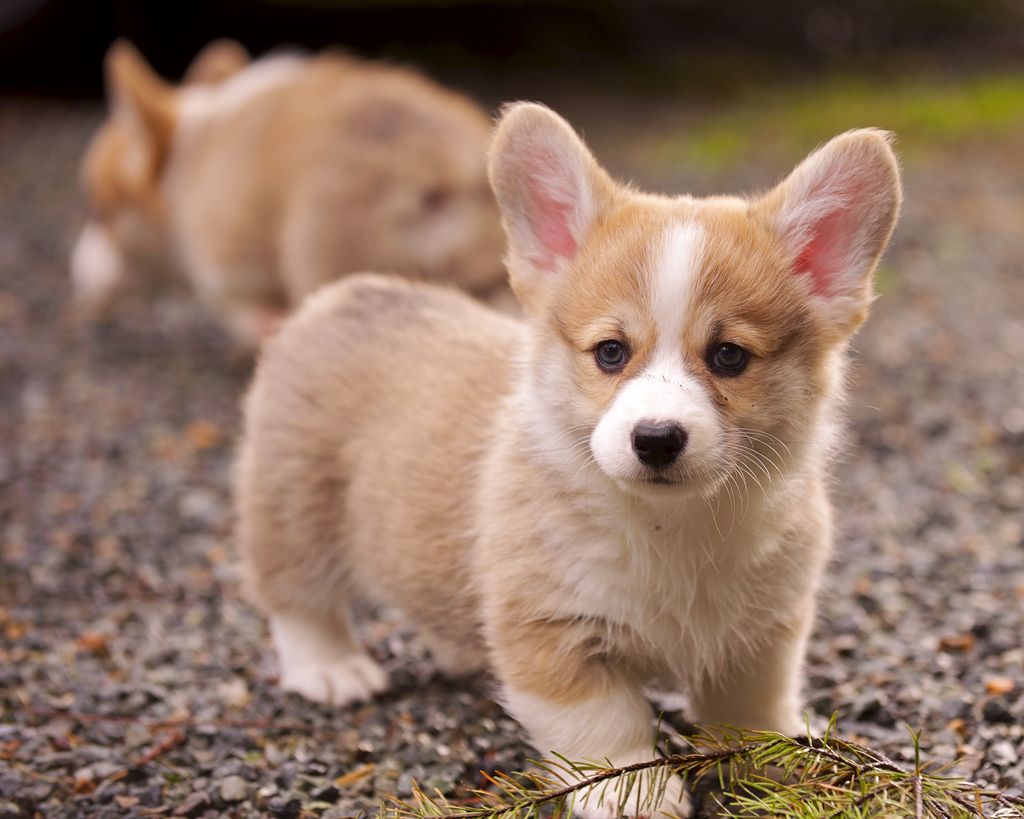Corgi puppies are some of the most adorable and playful pets you can bring into your home. With their short legs and fluffy tails, they capture the hearts of dog lovers around the world. In this comprehensive guide, we will explore everything there is to know about these delightful little creatures, from their characteristics and care requirements to their training and health considerations. Whether you're contemplating bringing a Corgi puppy into your life or are already a proud owner, this article is designed to provide valuable insights and tips.
As you delve deeper into the world of Corgi puppies, you’ll discover that these dogs are not only cute but also intelligent, energetic, and affectionate. They make fantastic companions for individuals and families alike, and with the right knowledge and preparation, you can ensure that your Corgi puppy grows into a well-adjusted adult dog. In addition, understanding the specific needs and behaviors of Corgis will allow you to bond more closely with your new furry friend.
Throughout this article, we will incorporate vital information regarding the care, training, and health of Corgi puppies, all while adhering to the principles of expertise, authoritativeness, and trustworthiness. By the end of this guide, you’ll be well-equipped to provide a loving and nurturing environment for your Corgi puppy.
Table of Contents
- Characteristics of Corgi Puppies
- Care Requirements for Corgi Puppies
- Training Your Corgi Puppy
- Health Considerations for Corgi Puppies
- Socialization Tips for Corgis
- Nutrition for Optimal Growth
- Common Issues and Solutions
- Conclusion
Characteristics of Corgi Puppies
Corgi puppies are known for their distinctive appearance and lively personalities. Here are some key characteristics:
- Physical Traits: Corgis have a stocky build with short legs, large ears, and a bushy tail. They typically weigh between 25-30 pounds as adults.
- Temperament: These puppies are known for being friendly, intelligent, and eager to please, making them excellent family pets.
- Energy Levels: Corgis are energetic dogs that require regular exercise to stay healthy and happy. They enjoy playtime and outdoor activities.
Care Requirements for Corgi Puppies
Grooming Needs
Corgi puppies have a double coat that sheds year-round, with heavier shedding usually occurring twice a year. Regular grooming is essential to keep their fur healthy. Here are some grooming tips:
- Brush their coat at least once a week to reduce shedding.
- Bathe your Corgi as needed, typically every few months.
- Check and clean their ears regularly to prevent infections.
Exercise and Playtime
As active dogs, Corgi puppies need daily exercise to maintain their physical and mental health. Aim for at least 30-60 minutes of activity each day, which can include:
- Walking
- Playing fetch or tug-of-war
- Engaging in agility training
Training Your Corgi Puppy
Training is a crucial aspect of raising a Corgi puppy. Their intelligence allows them to learn commands quickly, but consistency is key. Here are some training strategies:
- Start with basic obedience commands such as sit, stay, and come.
- Use positive reinforcement techniques, such as treats and praise, to encourage good behavior.
- Socialize your puppy with other dogs and people to develop their confidence and reduce anxiety.
Health Considerations for Corgi Puppies
Maintaining your Corgi puppy’s health is essential for a long and happy life. Be aware of common health issues that may affect this breed:
- Hip Dysplasia: A genetic condition that can lead to arthritis.
- Obesity: Corgis are prone to weight gain, so monitor their diet and exercise.
- Eye Conditions: Regular vet check-ups can help catch problems early.
Socialization Tips for Corgis
Socialization is vital for Corgi puppies to grow into well-adjusted adults. Here are tips to help with socialization:
- Expose your puppy to various environments, sounds, and people.
- Arrange playdates with other dogs to develop social skills.
- Enroll in puppy training classes for guided socialization.
Nutrition for Optimal Growth
Providing a balanced diet is crucial for your Corgi puppy’s growth and development. Here are some nutritional guidelines:
- Choose high-quality puppy food that is appropriate for their size and age.
- Feed them the recommended amount based on the food packaging and your vet’s advice.
- Monitor their weight and adjust food portions as needed to prevent obesity.
Common Issues and Solutions
Corgi puppies may face various challenges during their growth. Here are some common issues and solutions:
- Excessive Barking: Address this behavior with training and provide plenty of exercise to reduce boredom.
- Potty Training: Be patient and consistent with potty training. Use positive reinforcement for successful outings.
- Chewing: Provide appropriate chew toys to redirect destructive chewing behavior.
Conclusion
In conclusion, raising a Corgi puppy can be a rewarding experience filled with joy and companionship. By understanding their characteristics, care requirements, training needs, and health considerations, you can provide the best environment for your new furry friend. Remember, your commitment to their well-being will help them thrive and become a beloved member of your family.
If you have any questions or experiences to share about your Corgi puppy, feel free to leave a comment below. Don’t forget to share this article with fellow dog lovers, and explore more informative content on our site!
Thank you for reading about Corgi puppies. We hope to see you back here for more tips and insights on caring for your pets!
You Might Also Like
Is Avocado Good For Dogs? Exploring The Benefits And RisksUnderstanding The Money Behind 1 Million Views On YouTube
What Is A Mechanics Lien? Understanding The Basics And Importance
Understanding The "10 4" Meaning: A Comprehensive Guide
Batman: Under The Red Hood - A Deep Dive Into The Dark Knight's Struggles
Article Recommendations
- Daryl Hannah
- Dinosaur Dung
- Convert Excel To Html Table
- How Old Is Adriana Lima 2024
- Michael Jordan Tequila Reposado
- Global Impact_0.xml
- How Tall Sarah Jessica Parker
- Financial Empowerment_0.xml
- Lola Consuelos Weight Loss Ozempic
- Outdoor Propane Heater Table Top

